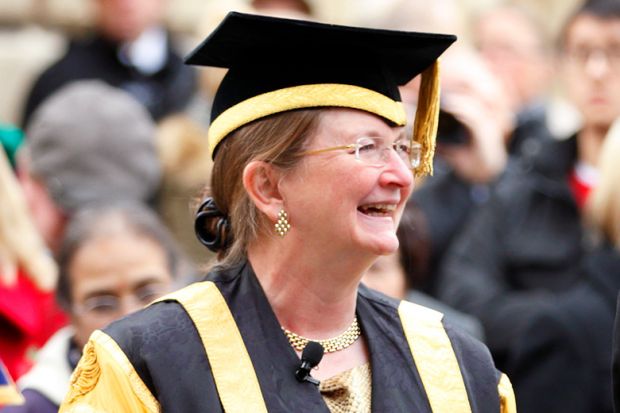Staff and students will be represented on the committee that sets the University of Bath vice-chancellor’s pay following a review of governance set up by the institution after outrage over Dame Glynis Breakwell’s pay and perks.
The review by Halpin Partnership consultants, commissioned by Bath, was published on 25 May, offering a series of recommendations to the university.
Dame Glynis received an 11 per cent rise in 2015-16 that took her salary package to £451,000 and made her the UK’s highest-paid vice-chancellor, as Times Higher Education revealed. Her package rose to £468,000 the following year.
A Higher Education Funding Council for England report had already criticised elements of the university’s governance. Hefce criticised the “flawed” handling of a court motion expressing concern about the vice-chancellor’s pay, narrowly defeated after key figures including Dame Glynis herself were able to vote against it.
The Halpin review says: “We conclude that the model of governance of universities incorporated by Royal Charter…remains fit for purpose, but that its application at the university…requires considerable improvement in order to restore the trust and confidence damaged by recent events and in order to move the university towards best practice in governance.”
Among the report’s recommendations is that the “membership of the [remuneration committee] should be changed to include an elected staff member of council, one of the student members of council and an external expert in executive remuneration”.
The university said that it agreed to this recommendation.
The report notes that changes already made by the university mean that the chair of council no longer chairs the remuneration committee and the vice-chancellor is no longer a member.
Staff and student council members should be made “full participants” in all council committees other than the audit committee, and reserved business items excluding student members from certain discussions should be abolished, it says.
These changes would “enable Bath to provide an exemplar to the sector in terms of staff/student participation in governance”, the report says.
A new post of head of governance should be created and council minutes should be routinely published on the university website, the report also recommends.
And it says that council members “should declare previous employment, where they have held senior positions in organisations which supply, have supplied or may supply goods/and or services to the university, on the register of interests”. This recommendation has already been accepted.
THE reported that John Stanion, previously but no longer a member of Bath’s remuneration committee, formerly led a construction company that has won contracts worth £64 million from the university.
Thomas Sheppard, chair of Bath’s council, said that the university welcomed the review and had “acted immediately to accept many of the primary recommendations”. Other recommendations would be considered by a steering group, he said. “Council takes both the words in this report and the intent behind them very seriously and it will be making sure that care is taken to progress the recommendations effectively and without delay,” he said.
Michael Carley, University and College Union branch president at Bath, said: “Bath UCU welcomes the Halpin report. While we have reservations about some details, the report lays out clear recommendations for the urgent reforms which are needed to restore decent governance at the University of Bath.”
The review does not say how staff and student representatives would be chosen.
Dr Carley added: “If senior management and governors had not treated staff and student concerns with such contempt, we might have come to this point in a collaborative and democratic manner, rather than suffering the bad publicity of the last two years.”
After the outcry over Dame Glynis’ pay led by Lord Adonis, the university announced that she will step down as vice-chancellor at the end of August 2018. She will then take a sabbatical for a semester “to further her academic research”, the university has said, before retiring at the end of February 2019.
Dr Carley said that “given the findings of this report and of the Hefce inquiry which preceded it, the chair of council and the university secretary, if they have any integrity, should step down”. They “were indulged…by the university’s council, and its members should also consider their position”, he added.
The Bath Unison and Unite branches said they “broadly welcomed” the review, but that the recommendations “do not go far”.
Simon Newell, Unison regional organiser, said staff and student representatives on the remuneration committee “must be directly elected by their peers, not selected by existing university governors”.
He added that there should be “greater representation of lower-paid university staff on the governing body and democratic elections for all of its members so that it becomes truly accountable to the whole university community”.
Mr Sheppard said: “We are committed to ensuring our university is well led and well governed. We embrace the need to keep pace with best practice at a time where expectations on the sector are rapidly changing and we are ready to make the changes needed to our governance structures so we can continue to deliver excellent teaching to our students and world-leading research with our partners.
“Changes to governance do not happen overnight. However, we hope that today is an important next step in this process as we move forward as a community.”




